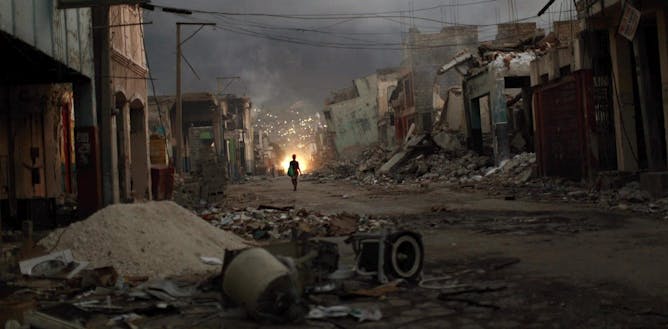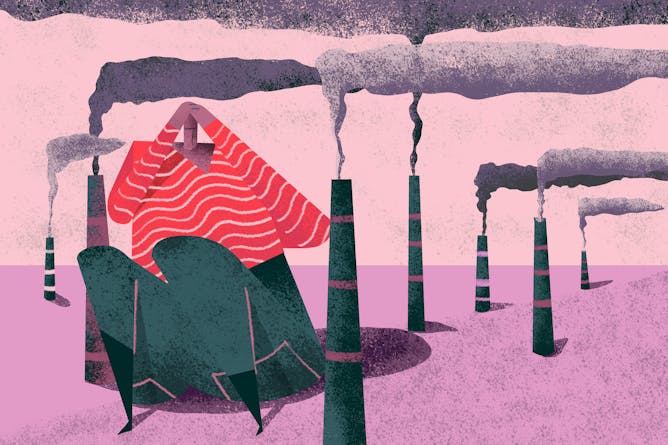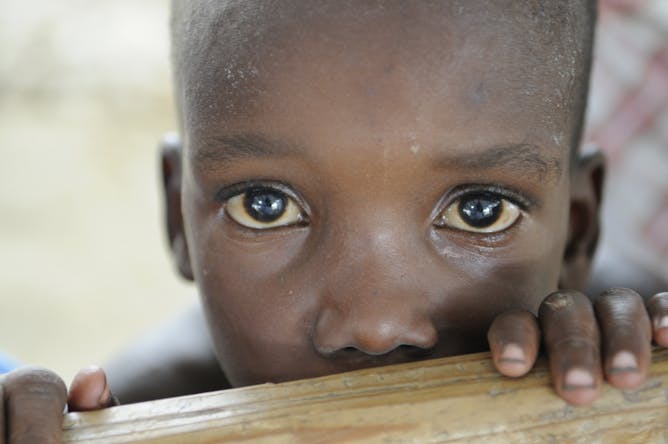|
We’re coming up to the 10th anniversary of one of the worst disasters of the century: More than 300,000 people were killed and nearly 1.5 million were left homeless when a massive earthquake hit Haiti on Jan. 12, 2010. Today in The Conversation Canada, three researchers from Université du Québec – Jean-François Savard, Emmanuel Sael and Joseph Jr Clormeus – look at Haiti a decade later and conclude the island nation “hasn’t recovered from this disaster, despite billions of dollars being spent in the country.”
Opponents of U.S. President Donald Trump often derisively refer to his supporters as members of the Cult of Trump. Sharday Mosurinjohn of Queen’s University explains why using the cult analogy “doesn’t help us understand why they are attracted to him, how their worldview has developed and how to do something about it.”
We also look at how and why many female business leaders are given the label “Queen Bee” and explain why eco-anxiety — the difficult emotions caused by environmental conditions and knowledge — is on the rise.
Regards,
|

A woman walks through the shattered streets of Port-au-Prince a few weeks after the Jan. 12, 2010 earthquake slammed the country, which has still not recovered despite billions of dollars being spent.
Rodrigo Abd/AP Photo, File
Jean-François Savard, École nationale d'administration publique (ENAP); Emmanuel Sael, École nationale d'administration publique (ENAP); Joseph Jr Clormeus, École nationale d'administration publique (ENAP)
Ten years after a devastating earthquake struck Haiti, the country is still struggling to recover and remains vulnerable to natural disasters.
|

Trump is seen in the Oval Office in early January 2020. Viewing him as a cult leader and his supporters as cult followers doesn’t help us understand why he appeals to some voters.
AP Photo/Alex Brandon
Sharday Mosurinjohn, Queen's University, Ontario
There are many legitimate ways to critique Donald Trump, but demonizing his voters as cult followers doesn’t help us understand why they are attracted to him and how their world view has developed.
|

The Queen Bee myth has more to do with how companies are structured than it does with women actually undermining one another at work.
(Shutterstock)
Sarah Kaplan, University of Toronto; Isabel Fernandez-Mateo, London Business School
At a time when corporations are struggling to address gender gaps at all levels, killing off stereotyped myths such as the Queen Bee Syndrome is essential.
|

Worrying about climate change has an adverse effect on our health and addressing this has to be part of the fight.
(Shutterstock)
Laxmi Prasad Pant, University of Guelph
As food systems are made vulnerable through climate change, we need to acknowledge and address the eco-anxiety provoked by threats to food security.
|

De nombreux enfants haïtiens sont nés de Casque Bleus, qui n'ont pas assumé leurs responsabilités. Une vaste enquête donne la parole à leurs mères, pour la première fois.
Shutterstock
Sabine Lee, University of Birmingham; Susan Bartels, Queen's University, Ontario
De nombreuses filles et femmes haïtiennes ont donné naissance à des enfants de Casque bleu, qui n’ont pas assumé leurs responsabilités. Une vaste enquête leur donne la parole pour la première fois.
|
Environment + Energy
|
-
Bhiamie Williamson, Australian National University; Jessica Weir, Western Sydney University; Vanessa Cavanagh, University of Wollongong
As Australia picks up the pieces after the fires, we must understand the unique grief Aboriginal people experience from a loss of country.
|
|
Politics
|
-
Sarah Burns, Rochester Institute of Technology
Both President Trump and President Obama used military force without informing Congress, or getting its approval. But the differences reveal more than the similarities.
|
|
Culture + Society
|
-
Benjamin T. Jones, CQUniversity Australia
If Harry and Meghan are seen as separated from the monarchy, or worse yet, victims of it, its long term survival is threatened.
|
|